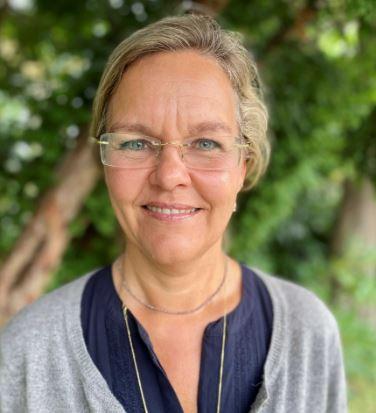Ground-breaking research helps children of parents with severe mental health disorders
The aim is to help these children with familial high risk and prevent the development of mental illness later in their lives.

The Lundbeck Foundation has awarded a DKK 37 million grant over the next five years to VIA 19, the fourth phase of the longitudinal study of a nationwide cohort of children born to parents diagnosed with bipolar disorder or schizophrenia. The aim is to help these children with familial high risk and prevent the development of mental illness later in their lives.
VIA 19 is part of The Danish High Risk and Resilience Study (VIA), which has followed a large group of children since 2013, when they were seven years old (the VIA 7 study). The longitudinal study systematically collates information about the children’s social, motor and cognitive development, the mental health of the children and their parents, their home environments and biological markers.

Broadly speaking, VIA is about preventing mental health issues and developing new treatments. It aims to build up a better understanding of how mental illness starts and progresses and why some people succumb to illness and others do not. Anne Thorup, clinical professor at the University of Copenhagen and specialist in child and adolescent psychiatry, is one of the principal investigators on the VIA study.
‘The first phase – VIA 7 – was a real eye-opener in that it showed that children of parents with severe mental illness are more vulnerable and are at greater risk of mental illness early in life. VIA 19 – the fourth phase –will study the group at age 19. It will provide insight into which members of the group develop problems. Combined with results from previous phases, that data will allow us to identify early signs of illness, which will help us identify the earliest and best ways to intervene to prevent bipolar disorder, schizophrenia, severe depression, etc.’

VIA 19 is a new phase of the longitudinal VIA study, the results of which have attracted a great deal of interest in Denmark and abroad. At the time of VIA 7 in 2013, the children were all seven. Since then, the researchers have examined the same group equally thoroughly during VIA 11 and VIA 15. Now, they will repeat the process with the group, who are all now young adults aged 19.
Merete Nordentoft, professor of psychiatry at the University of Copenhagen, Mental Health Center Copenhagen, is another principal investigator on the VIA study. She stresses that VIA 19 represents an opportunity to devise a model capable of predicting adverse developments and a test for identifying early risk factors and markers.
‘We are very proud and pleased to receive the grant, which enables us to continue this unique study. Overall, the research focuses on two parallel areas. One is to identify early warning signs and risk factors, which will facilitate early intervention. The other is to understand how mental illness develops from childhood to adulthood. In the follow-up VIA studies, we will gain better insight into how disorders develop by following changes in different domains, such as symptoms, cognitive and motor problems and sleep patterns.’
The first phase – VIA 7 – was a real eye-opener in that it showed that children of parents with severe mental illness are more vulnerable and are at greater risk of mental illness early in life.
International research and Danish registry studies have already shown that children of parents with schizophrenia or bipolar disorder have a congenitally higher risk of mental illness before the age of 30. Children are an often-overlooked high-risk group, according to the two researchers.
‘The VIA studies are an important piece in the jigsaw puzzle that will lead to understanding children born into families with severe mental illness, what they have to contend with and how the families struggle to find help or prevent the children from suffering the same problems. Imagine if we could screen children at school for symptoms of these disorders in the same way they quite naturally go to the school dentist to prevent problems with their teeth,’ says Anne Thorup.
Overall, the research focuses on two parallel areas. One is to identify early warning signs and risk factors, which will facilitate early intervention. The other is to understand how mental illness develops from childhood to adulthood.
The Lundbeck Foundation has been involved in the VIA study since the start more than a decade ago, and the new grant demonstrates a long-term commitment to an extremely important area, according to Lars Torup, Programme Director at the Lundbeck Foundation.
‘One of the Lundbeck Foundation’s principal aims is to support research that will benefit people with mental health issues. The VIA studies are unique because they focus on vulnerable children at high risk of mental illness. They give us deeper insight into the early stages of disease and identify significant causalities. This important information– and the tools expected in the future – will help children and young people in the high-risk group find the right help and give them a better chance of a good life,’ says Lars Torup.
A major meta-analysis has documented that approximately 55% of children whose parents have at some point been diagnosed with schizophrenia or bipolar disorder will experience mental illness in early adulthood.
About VIA:
VIA is a unique multi-regional collaboration between the adult psychiatric research units in Skejby (Aarhus), Psychiatric Centre Copenhagen and the research unit at the Centre for Child and Adolescent Mental Health in the Capital Region of Denmark.
The longitudinal register-based project studies a cohort of 522 children.
- VIA 7 (2013–2016) studied the group starting at age 7
- VIA 11 (2017–2020) studied the group starting at age 11
- VIA 15 (2021–2024) is studying the group starting at age 15
- VIA 19 (2024–2027) will study the group starting at age 19.
The study also included two questionnaire surveys – VIA 9 and VIA 14.
The support from the Lundbeck Foundation will run from the start of 2024 until the end of 2028.
Learn more about VIA: VIAs-website